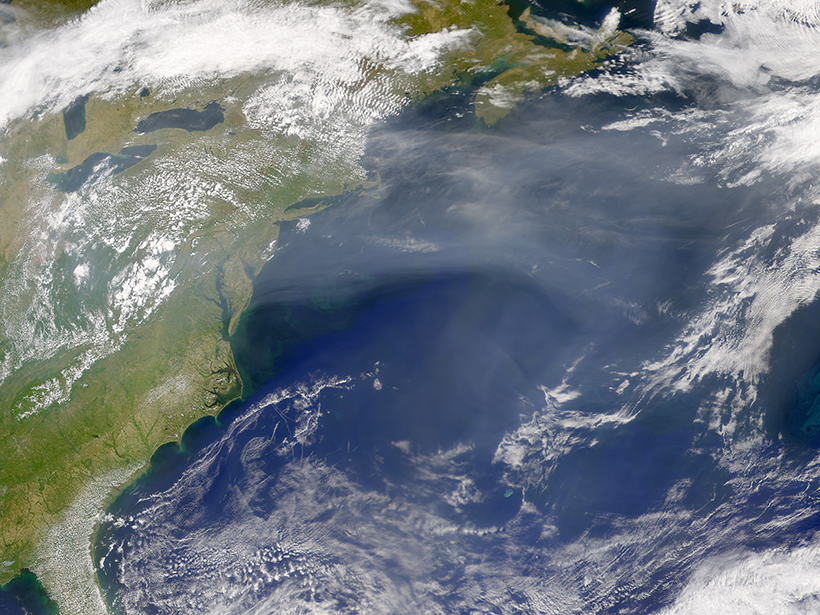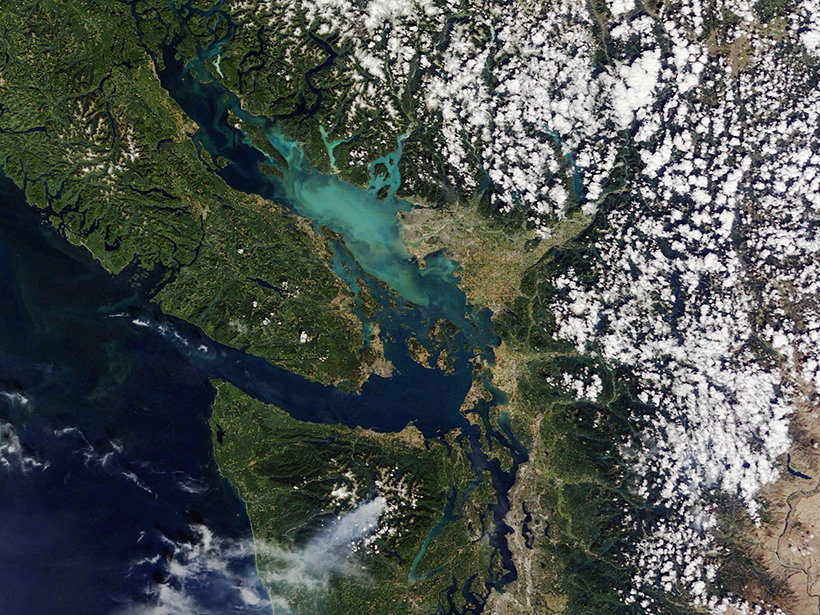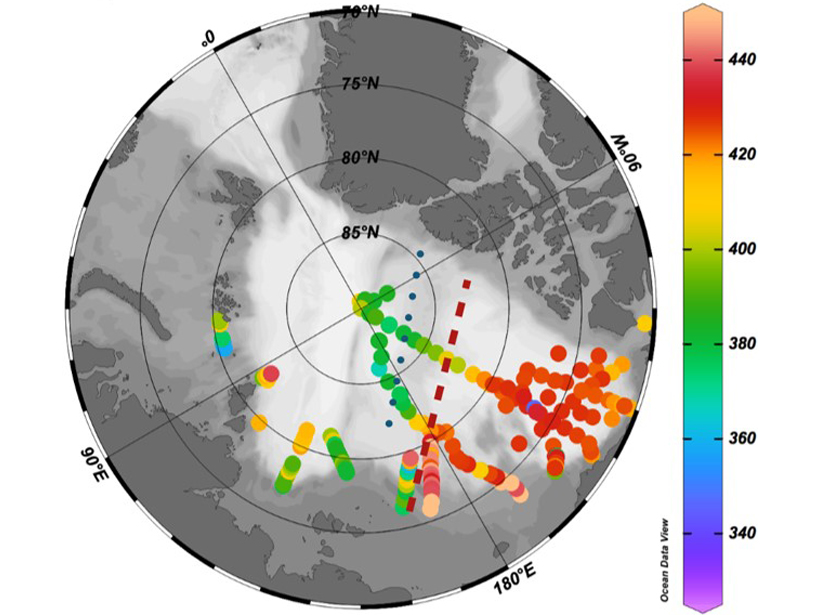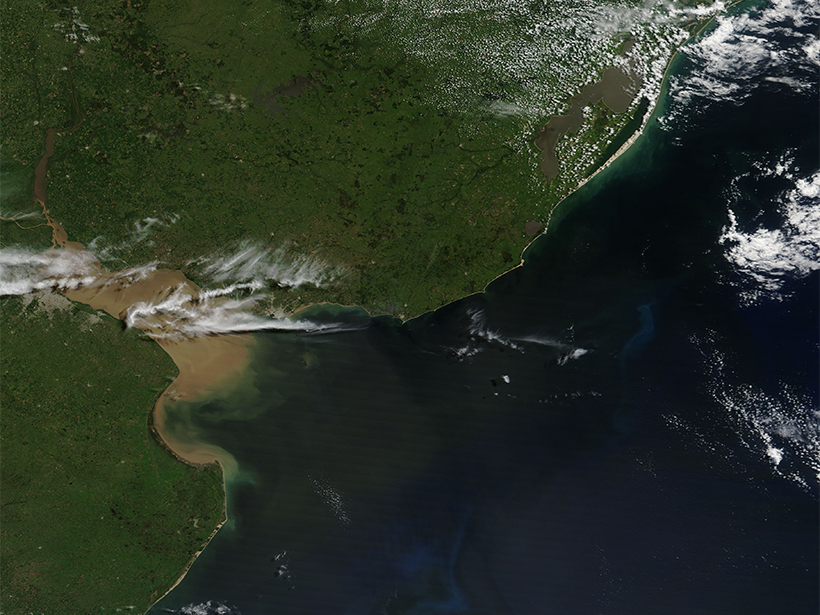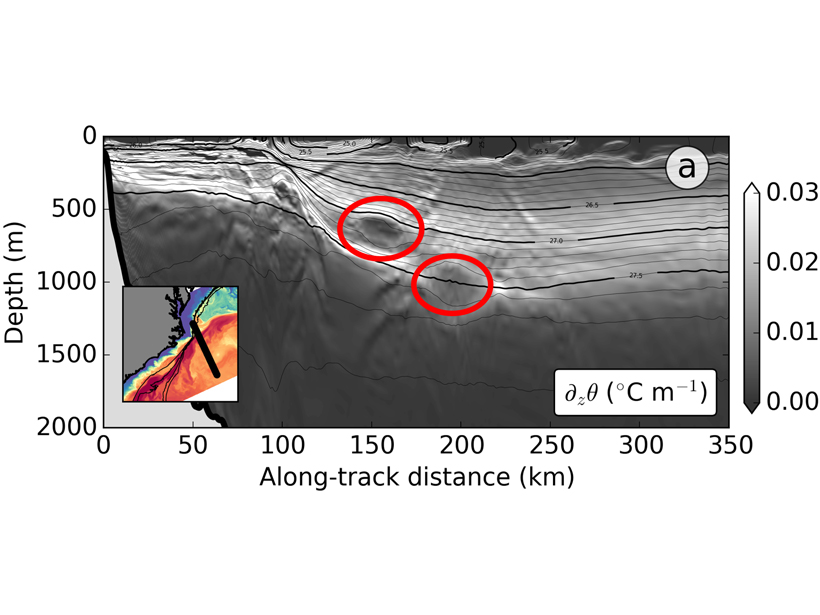No direct causal connection exists between coastal sea level changes and the strength of the North Atlantic’s overturning circulation, according to new, longer-term observational records.
Atlantic Ocean
Role of Humans in Past Hurricane Potential Intensity Is Unclear
In recent decades, there have been more intense North Atlantic hurricanes. A new study compares climate models to see whether they can attribute increasing potential intensity to human activity.
Australia–New Zealand Plan for Future Scientific Ocean Drilling
Australian–New Zealand IODP Consortium Ocean Planet Workshop; Canberra, Australia, 14–16 April 2019
Mud on the Move
Powerful submarine flows known as turbidity currents are starting to give up their secrets.
Distinguishing Pacific and Atlantic Contributions to the Arctic
A semi-conservative tracer combining nitrate and dissolved oxygen is more accurate than traditional tracers in distinguishing between Atlantic and Pacific water mass contributions to the Arctic.
Satellite Imagery Reveals Plastic Garbage in the Ocean
Using high-resolution satellite data, scientists pinpoint discarded plastics floating off the coasts of Canada and Scotland.
Unraveling the Origins of a Record-Setting Marine Heat Wave
The extreme heat wave in the southwestern Atlantic in 2017 was likely caused by upper atmosphere circulation patterns triggered by the Madden-Julian Oscillation tropical weather cycle.
Weather-Induced Tsunami Waves Regularly Roll Up on U.S. Shores
Roughly 25 meteotsunamis strike coastlines between Maine and Puerto Rico each year, tide gauge data reveal.
North Atlantic Circulation Patterns Reveal Seas of Change
New evidence suggests the eastern Atlantic may be the site of major overturning.
Wrinkles and Bumps in the Gulf Stream
Observations of tiny vortices in the ocean interior provide hints of a dynamic richness of the deep ocean that we are yet to fully appreciate.

